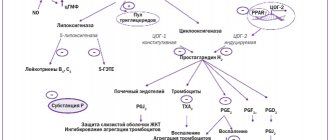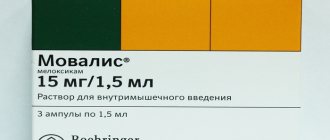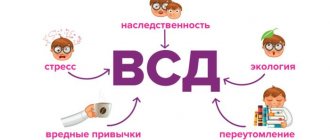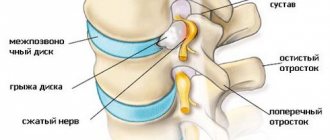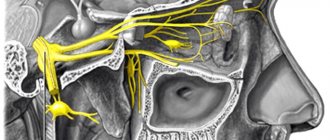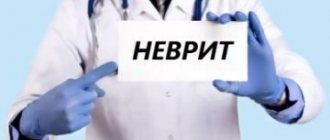Main response apparatus of the jaw
An acute piercing sensation of a paroxysmal nature in the area of the cheeks and teeth is a feature of the manifestation of neuralgia.
When dental neuralgia occurs, the symptoms will differ from problems caused, for example, by pulpitis. A self-occurring condition of trigeminal nerve irritation is rare. More often caused by pathologies of other diseases. A complex and quite sensitive nerve is mixed. Therefore, the main sensory apparatus of the jaw always reacts to problems in the dentition. And sometimes it is difficult to distinguish whether problems primarily occurred with the chewing elements or with the paths of impulse transmission. And how to distinguish toothache from neuralgia then?
After all, problems with the nervous system, as an independent phenomenon, are less common than with chewing elements. Therefore, such a condition as dental neuralgia has symptoms that differ in their manifestations.
Anatomy of the location of the branches of the trigeminal nerve
Phantom nerve toothache
The phenomenon of phantom pain is interesting due to the variety of causes it occurs. Until recently, doctors confidently informed their patients that discomfort was associated exclusively with tooth extraction, after which the patient remained unwell for some time. More in-depth studies of this issue have shown that stress conditions can be the cause of pain. The patient has healthy teeth, gums and oral cavity, however, from time to time he is accompanied by unrelated pain. Unlike the previous point, where doctors can explain toothache by clenching the jaws due to nervousness, there is no such relationship here. The situation completely relates to mental disorders and, as a consequence, to the body’s reaction to exciting states.
Pain in teeth due to neuralgia
Normally, a person's sensory supply is always observed in the area of the front of the face. It is carried out thanks to fibers passing through this area related to the trigeminal nerve. It is responsible for how we react to problems in the oral cavity. And if neuralgia of the teeth appears, then it hurts us very much.
Diagram of the innervation pathways of the trigeminal nerve in the jaw area
Let's understand the differences:
- Untreated caries can cause a condition such as neuralgia, toothache in this case will be vague. It can be of different localization and radiates more outside the face than inside the structures that hold the mineral formation.
- Toothache with neuralgia is provoked by everything that happens to you, from cold food to wind in the face.
- Neuralgia of the teeth has a similar nature of response to irritation, but of a more acute piercing nature. Letting you go for a while, the pain appears again.
Dental neuralgia can appear for various reasons:
- Colds, sinusitis.
- Tooth decay causing bacteria to penetrate to the root apex. The result is the onset of inflammation.
Soft tissues increase in volume and put pressure on the passing branches of the sensory system. Prolonged irritation leads to the fact that for such a symptom as dental neuralgia, treatment must begin in an acute manner. Because it is very difficult to tolerate irritation in this special nerve with complex response pathways.
Can a tooth hurt due to nervousness?
Many people notice that their perfectly healthy teeth suddenly begin to hurt. A dental examination does not yield results, and the unfortunate patient has to live on painkillers.
The phenomenon of this condition may be hidden in diseases of the nerves and stress that can cause pain in the mouth. What theories have been proven by dental specialists: can teeth hurt due to nervousness, and how to deal with it?
Teeth hurt when stressed
To understand why nerves can cause pain in the mouth, you need to understand the mechanism of stress. During nervous overstrain, a certain portion of the hormone cortisol is released into the blood.
At the moment of danger, it, like adrenaline, is capable of causing all the body’s defense systems to work with redoubled force. However, as soon as the stress subsides, everything returns to normal, but the consequences of the psychological shake-up manage to affect the nerve cells.
Located throughout the body, they are also present in the dental-maxillary regions. It is not surprising that after an outburst of emotions a person suddenly feels an inexplicable pain in his teeth.
It can also “migrate” to the cervical and head regions. The condition of the oral cavity is assessed as good, but a neglected nervous mechanism creates the same pain, sensations in which the teeth ache, the gums tingle, and the jaw “aches.”
Dentistry has its own opinion about the possibility of stress influencing dental pain. Many people, when in a stressful situation, clench their jaws tightly.
This phenomenon indicates that the person is in a state of nervous overstrain. He may be experiencing stress at work or personally, which is affecting his condition. In this case, aching pain in the mouth may be preceded by psychosomatics.
Clenching teeth causes pain
Nerve-related jaw clenching wears away enamel and overworks the jaw joints, which can lead to wear and tear.
In this case, the problem of pain in the teeth is quite simple to cure: you just need to reduce susceptibility to stress and get rid of jaw clenching, which forms chronic unpleasant symptoms.
The phenomenon of phantom pain is interesting due to the variety of causes. Until recently, doctors confidently informed their patients that discomfort was associated exclusively with tooth extraction, after which the patient remained unwell for some time.
More in-depth studies of this issue have shown that stress conditions can be the cause of pain. The patient has healthy teeth, gums and oral cavity, however, from time to time he is accompanied by unrelated pain.
Unlike the previous point, where doctors can explain toothache by clenching the jaws due to nervousness, there is no such relationship here. The situation completely relates to mental disorders and, as a consequence, to the body’s reaction to exciting states.
Signs of so-called phantom pain include:
- painful lesion in the head;
- tingling or even a feeling of twitching gums;
- effect of toothache in the whole mouth;
- increased fatigue.
Very often a person can be accompanied by insomnia, since often tooth pain prevents the patient from getting enough sleep.
After making sure that the patient does not have caries, pulpitis or another dental disease, the doctor can assume that the cause of the toothache is inflammation of the trigeminal nerve.
Despite the fact that among the main factors influencing the development of neuritis and neuralgia are hypothermia, compression of the facial nerve as a result of injury, as well as the Zoster virus (shingles), very often experts talk about stress.
The clinical picture may also include piercing pain on one side of the face, chills, and fever. Sometimes a nasty rash develops on the affected area.
Trigeminal neuralgia
Contacting a dentist in this case is useless, since the main problem is related to the nervous system, and the pain will go away only with adequate therapy.
Since the problem is purely nervous in nature, the questions “What should I do?” and “How to get rid of these feelings?” A neurologist usually gives the answers. With proper treatment of the nervous system, toothache will disappear.
What recommendations can be given to those who suffer from tooth pain due to nerves?
- Working hours and stress reduction. If it is established that your teeth hurt due to nervousness, then you should pay attention to your lifestyle. Very often, stress is provoked by overwork and nervous shock, and they lead to pain in the oral cavity. Psychological problems begin if there is an incorrect lifestyle.
- Healthy and regular sleep. Even those who know little about medicine know about the importance of sleep. Rest is a necessary process for every living being, because... It is during sleep that the brain receives the relaxation and relaxation it needs. Attempts to “save” on vacation, as well as lack of sleep, are a direct road to stress and illnesses that arise due to nerves. Sleep duration should be at least 8 hours.
- Moderate physical activity. Excessive exercise is just as harmful as physical inactivity, so relaxation exercises are recommended to improve the nervous system. This could be yoga, Pilates, swimming or cardio training. An excellent cure for stress and, as a result, for pain in the teeth, is meditation.
- Diet. A balanced diet is the key to health, no matter how banal this phrase may sound. It is no secret that fasting or a diet generously “flavored” with fatty, salty, spicy and unhealthy foods can affect the state of the nervous system. Strict diets that limit the intake of nutrients and protein can also reduce resistance to stress. A diet enriched with vitamins and minerals is an excellent opportunity to strengthen the nervous system and help cope with dental pain caused by stress.
Don't be nervous - medications as prescribed
In addition to simple methods aimed at improving the functioning of the central nervous system, there are tools that perfectly help cope with stressful situations. These are, first of all, herbs, the naturalness of which makes them safe and well accepted by the body.
To strengthen the nervous system, mint, lemon balm, valerian, and motherwort, which have a sedative effect, have proven themselves well.
You can also use homeopathic medicines made from plants. This could be Persen Forte, Novo-Passit, Fitosed and other medications that help cope with nervous system disorders.
All these simple but effective techniques will help those who already suffer from dental pain as a result of stress, and will also be an excellent preventive measure for people who have problems with central nervous system and increased susceptibility to nervous shocks.
Surely, each of us has experienced toothache at least once. This is a very unpleasant and unbearable thing. No one would have thought that a tiny tooth could cause a person so much hateful suffering and problems.
A large number of people are interested in the question: #171;can a tooth hurt from nerves?#187;. Of course it can, because sometimes this painful process is not at all associated with caries or gum inflammation.
During times of stress, a person’s muscles that compress their jaws themselves tense up. The force of jaw clamping depends directly on the level of nervous tension.
As they age, such people often begin to experience frequent pain in the jaw, face and neck. It is then that such pains become regular, and a person most often, due to his lack of identification, turns to a dentist and an ENT specialist.
A true phenomenon is when a person with completely healthy teeth comes to the dentist. In such cases, it is indeed very difficult to determine the cause.
The causes of toothache are usually divided into 2 groups:
- Which is really associated with dental problems (caries, pulpitis, periodontitis).
- Others that cause damage to neighboring formations: bones, nerves, and so on.
What it is?
Neuralgia is a disease of the peripheral nerves, accompanied by attacks of severe pain. Depending on where in the nervous system pain occurs, different types of neuralgia are distinguished.
The most common of these is trigeminal neuralgia, which affects 50 out of 10,000 people and is more common in women over 40 years of age.
For the first time in the history of medicine, information about this disease is found in the works of the famous Chinese physician Hua-To, who lived at the beginning of our era. In Europe, trigeminal neuralgia was first described by the English doctor D.
Fothergill in his monograph “Painful lesions of the face” in 1781.
Consultation with a neurologist in Moscow
Parkinson's disease: rehabilitation required
Stroke: five dangerous misconceptions
Neurotropic vitamins and NSAIDs in the treatment of pain syndromes
The development of neuralgia is facilitated by injuries, previous infections and severe forms of colds, as well as hypothermia.
Trigeminal neuralgia can be the result of facial trauma, previous inflammation of the sinuses, diseased teeth (pulpitis), even malocclusion.
An attack of pain with trigeminal neuralgia can occur at any time: as a reaction to hot or cold food, loud sounds, too bright light, even while brushing your teeth.
In addition, there are so-called trigger (“trigger”, “trigger”) zones on the face, even a slight touch of which causes an acute attack of neuralgia; these are, first of all, the wings and tip of the nose, gums and upper lip.
Constant, less often paroxysmal pain in the rib area, aggravated by coughing or sneezing, indicates that you may have intercostal neuralgia.
Symptoms of the disease
Sharp intense pain is the main symptom of trigeminal neuralgia. The pain usually occurs on one side of the face, it can be almost unbearable, shooting, comparable only to an electric discharge.
Attacks can last from a few seconds to 2-3 minutes. Sometimes attacks are accompanied by increased salivation and uncontrollable lacrimation. Throughout the course of the disease, the pain does not change its location.
An attack always occurs under certain conditions, more often when some area of the face is irritated. Patients noticed the following factors causing another attack of neuralgia:
- washing, brushing teeth, shaving;
- touching the face;
- blow to the nose;
- applying makeup;
- a breath of wind;
- yawn;
- talk;
- smile;
- chewing food.
When a person is calm, such as during sleep, attacks never occur. Other symptoms of neuralgia may include:
- Facial spasms or distortion. During an acute attack, the patient may experience contraction of the facial muscles. Facial expressions are distorted, muscles twitch. If the attacks are very severe, the person begins to behave in a certain way during them - he moves less, remains silent, trying to minimize the pain.
- Headache.
- A mild increase in body temperature that causes chills, weakness, and muscle or joint pain.
- Constant irritability and fatigue, which are associated with frequent painful attacks.
- In rare cases, a rash on the face.
The trigeminal nerve has several branches , each of which can cause different symptoms of neuralgia.
- The first branch – pain occurs in the eye area, it can radiate to the temple, forehead or bridge of the nose.
- The second branch – pain is localized in the area of the upper lip or teeth. Pain can move to the temporal region and back. Sometimes such neuralgia is confused with toothache.
- Third branch - pain occurs near the chin, spreading to the ear or lower jaw.
Neuralgia pain can be typical or atypical. In the first case, pain occurs in attacks that are provoked by certain conditions. Between attacks the person feels normal.
In the second case, the person experiences pain constantly, and it can occur in different parts of the face. This type of neuralgia is much more difficult to cure than the first.
Trigeminal neuralgia is characterized by a certain cyclicity. Some people experience attacks almost every hour, while others may have them as often as a few times a week.
What to do if your tooth hurts badly due to nerves
Most people experience toothache at one time or another. These are unbearable, nagging sensations that give no rest day or night, sometimes radiating to the jaw and head. The cause of toothache is various diseases, but it may also be that teeth hurt from nerves.

Toothache can be caused by nerves
There are the following types of diseases that can cause tooth pain.
Caries
During depression, people find it difficult to take care of themselves. They find it difficult to force themselves to do household chores, go to work, and take care of body hygiene, including the oral cavity. By not doing this carefully or by forgetting to brush your teeth, people are at risk of developing tooth decay. Taking anti-depression medications only makes the situation worse because they cause dryness. Therefore, you should not forget about brushing your teeth even in a severe depressive situation and visit a dentist for a check-up, for example, Ilatan Dentistry.
Bruxism
There are often people who clench their teeth so hard in their sleep, when they are very nervous or angry at someone, that they begin to “grind” - this is called bruxism. If you notice this in yourself, you should contact a neurologist, because the disease cannot be ignored. After all, strong clenching of the jaw leads to the destruction of tooth enamel, which is the first prerequisite for the formation of caries. The disease can lead not only to dental pain, but also to joint pain in the head area.
Treatment of trigeminal neuralgia
It is extremely difficult to cure this disease and even radical treatment methods do not always give a positive result.
But proper therapy can relieve pain and significantly alleviate human suffering.
The following treatment is usually prescribed:
- Antiviral drugs - herpevir, acyclovir, lavomax. They are used if the cause of neuralgia is an infectious disease.
- Anti-inflammatory drugs that do not contain steroids - indomethacin, Celebrex, Revmoxib, Dicloberl, Celebrex.
- Painkillers – dexalgin, ketanov, ketalgin. If the pain is very severe, they may prescribe narcotic drugs - morphine, promedol, tramadol or nalbuphine.
- Antispasmodics – sirdalud, mydocalm, etc.
- Glucocorticoids – dexamethasone, methylprednisolone, hydrocortisone. These drugs reduce swelling of the nerve and also relieve inflammation.
- Neuroprotectors and vitamins - neurobion, milgama, proserin, neurorubin and others.
- Local remedies - lidocaine or anesthetic ointment.
Physiotherapeutic procedures also have a beneficial effect . For this disease, electrophoresis, magnetic therapy, ionogalvanization, ultraphonophoresis, transcutaneous electrical stimulation, paraffin-ozokerite, diadynamic therapy, UHF, etc. are often prescribed.
Drug therapy does not always help cope with the disease. Sometimes doctors have to resort to surgery. There are the following types of operations:
- Percutaneous surgery. Used in the early stages of the disease. Under local anesthesia, the trigeminal nerve is destroyed by exposing it to chemicals or radio waves.
- Nerve decompression. This operation is aimed at correcting the location of the arteries that compress the trigeminal nerve.
- Radiofrequency destruction of the nerve root. In this operation, only a certain part of the nerve is destroyed.
The type of operation is prescribed depending on the individual characteristics of the patient’s disease.
Do your gums hurt and bleed? Find out how to get rid of this unpleasant phenomenon at home.
Why do teeth crumble? Causes of tooth decay in adults and children.
Treating the disease at home: folk remedies
Some folk recipes can reduce pain from neuralgia, relieve inflammation and swelling. The most popular means are:
- Mint tincture. Take 200 g of mint and 100 g of St. John's wort and valerian. These herbs are mixed, a liter of water is poured on top and put on fire. After the water has boiled, the herbs are boiled for 15 minutes, then the broth is filtered and infused in a dark place for about 5 hours. You need to take this tincture one spoonful three times a day. A similar tincture can be prepared from burdock and chamomile.
- Aloe juice. The juice of an adult plant, which should be taken a teaspoon 3 times a day, preferably before meals, effectively helps against neuralgia.
- Black radish juice. By mixing it with a small amount of lavender oil, you need to rub it into sore spots, thereby reducing the number of attacks and reducing pain.
- Birch juice. By taking it orally or lubricating it on the side of the face affected by neuralgia, you can reduce the symptoms of the disease. You need to drink 4-5 glasses of this juice per day.
- Geranium compresses. Take fresh leaves of this plant, place it on a cloth or napkin, and then fasten it to the diseased area. Periodically you need to replace geranium leaves with fresh ones.
- Marshmallow root. Several roots of this plant are crushed and brewed with boiling water. The decoction should sit for about a day, after which a cloth is soaked in it and applied to the affected areas for 1 hour.
Folk remedies
In addition to simple methods aimed at improving the functioning of the central nervous system, there are tools that perfectly help cope with stressful situations. These are, first of all, herbs, the naturalness of which makes them safe and well accepted by the body.
To strengthen the nervous system, mint, lemon balm, valerian, and motherwort, which have a sedative effect, have proven themselves well.
You can also use homeopathic medicines made from plants. This could be Persen Forte, Novo-Passit, Fitosed and other medications that help cope with nervous system disorders.
All these simple but effective techniques will help those who already suffer from dental pain as a result of stress, and will also be an excellent preventive measure for people who have problems with central nervous system and increased susceptibility to nervous shocks.
A little anatomy
In order to imagine the areas in which very severe pain in the dental area can occur, remember that the trigeminal nerve is a paired nerve, which on each (left or right) side is divided into three branches: ophthalmic, maxillary and mandibular.
A little anatomy to have an idea of the nature of trigeminal neuralgia
Therefore, even the name itself: “trigeminal neuralgia” is general and non-specific. For example, “intercostal neuralgia” makes it clear that the painful process unfolds in the intercostal spaces. “Occipital neuralgia” – immediately points to the back of the head. What does “trigeminal neuralgia” mean?
And then it turns out that here you can find pain in the area of the orbit, forehead, brow ridges, bridge of the nose, eyelids, nose, internal nasal passages and turbinates, in the skin of the face, ear, in the area of the nose and eyes, etc.
In the same way, when the trigeminal nerve suffers, painful impulses can come from the inner mucous membrane of the oral cavity, tongue, and, of course, teeth - both upper and lower, both right and left.
Nerve removal in a clinical setting
The procedure for nerve removal in the clinic is carried out under anesthesia, regardless of the scope of work.
Sequence of actions for depulpation:
- The dentist isolates the surgical area from the surrounding tissues using a waterproof film - a rubber dam.
- The specialist removes dead areas of dentin and enamel by filing, using air cooling technology.
- Opening the pulp chamber and extracting nerve endings from it.
- Rinsing the dental canals with antiseptics to prevent further infection of the tooth and soft tissues.
- Root canal filling.
- Carrying out a control x-ray.
- Placement of a temporary filling.
The dentist may offer the patient complete or partial depulpation. In the first case, the procedure lasts up to 2 hours, depending on the complexity of the work and the size of the carious cavity. The doctor installs temporary material into the treated tooth, which kills the remnants of nerve endings. After 2-3 days, the patient will need to visit the doctor again to install permanent material.
Partial depulpation involves a one-step solution to the problem. After it, the tooth retains the same sensitivity and ability to resist pathogenic flora.
During partial depulpation, the dentist uses several types of instruments:
- Drop-shaped drill. Necessary to increase the lumen of the dental canals.
- Riemer. It is a metal wire with a pointed end. Used to expand straight sections.
- Pulpoextractor. Allows you to remove inflamed nerves from the tooth.
- Miller needle. Allows dentists to view canals.
During the procedure, specialists may encounter a number of problems that interfere with partial depulpation:
- curvature of channels;
- maintaining tooth sensitivity even after anesthesia;
- chipping of the crown of a tooth.
How does dental “trigeminal neuralgia” occur?
Neuralgia of the teeth and gums, which occurs in this case, proceeds according to the same laws as other types: a rapid, shooting pain impulse occurs, which lasts from several seconds to several tens of seconds.
Trigeminal neuralgia pain on the face can appear anywhere
This severe pain can make a person close his eyes. Sometimes the tip of the nose turns red and watery eyes occur on one side. If this neuralgia concerns exclusively one branch of the trigeminal nerve, which innervates one half of the upper or lower jaw, then all the teeth on one side hurt.
In this flash of pain, it is difficult to figure out which specific tooth hurts. They all hurt, but the pain impulse can still be localized near a tooth.
It must be remembered that in the case of dental neuralgia, after an abrupt cessation of the attack, the patient experiences “complete well-being”, and until the next attack he lives as a completely healthy person.
Think before you sit in the dentist's chair
If a person has teeth on this side that are susceptible to pain and untreated (and this, unfortunately, happens very often), then the patient with a complaint ends up in a chair. It happens that completely healthy teeth are removed.
Therefore, before asking the dentist to save you from suffering, go to a neurologist. And if you find yourself at the dentist, then treat teeth, not remove them.
After all, caries, or pulpitis, will certainly leave visible signs of destruction of the tooth crown, or, in extreme cases, damage to the upper layer of enamel in the form of a stain.
You should know for sure that with dental neuralgia the source of pain is not the teeth at all, just as with neuralgia in general. The source of pain is a pathologically arising impulse, which develops separately from the zone from which it is obliged to receive impulses.
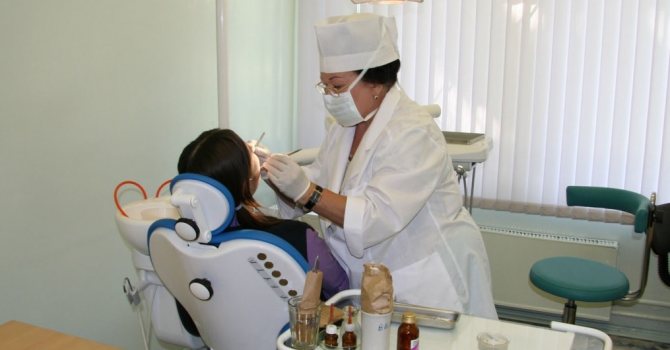
Once again - think before removing teeth, find the cause of the pain
Most likely, with neuralgia of the teeth and gums, this impulse occurs in the area of cells that are responsible for collecting impulses from the teeth and gums, but the cells themselves are located in the area of the Gasserian ganglion - the ganglion of the trigeminal nerve, which is located deep in the skull.
That is why it is worth visiting a neurologist, who will prescribe anticonvulsants for diagnostic purposes, which you should not be afraid of. If they provide relief, which means that the attacks either disappear completely or become less frequent and shorter, then you have come to the right place.



